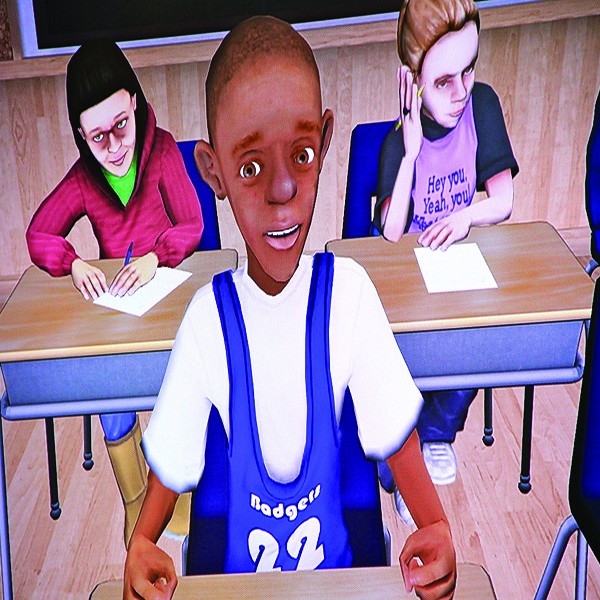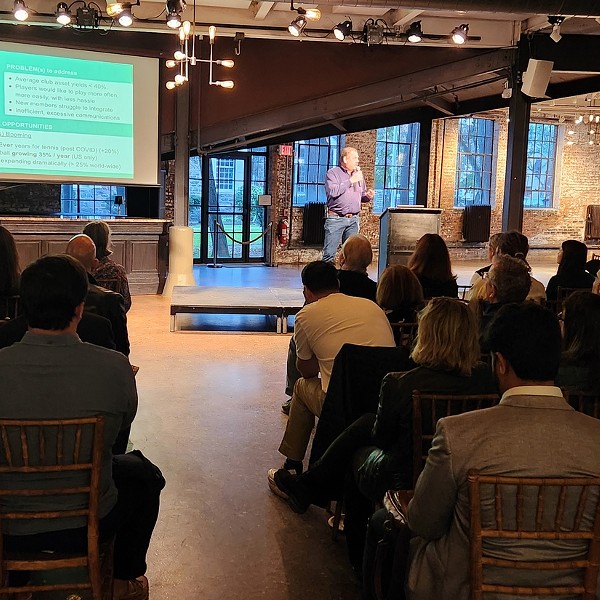Trapped between students and bureaucrats, facing piles of standardized tests and policy directives, with tight budgets requiring them to dig into their own pockets for extras, the surprising statistic may not be that about half of all newly minted teachers give it up in the first five years, but that half manage to stay.
How are our local teacher education programs preparing educators in training to meet the challenges? It starts with filtering in the right candidates. "Our program is small and fairly selective," says Derek Furr, director of the Master of Arts in Teaching program at Bard College. "Candidates tend to have two things in common: very strong performance in the content area they majored in as undergrads—we only certify middle and high school teachers, so content is key—and a very strong interest in social justice issues. They see teaching as a social justice calling."
Furr says older students are the heart of the Bard program, which has only 28 students currently and offers lots of individual attention. "Most come to our program after being out of school two or three years. We get a lot of career changers, people who have studied something else and realized they want to teach. They see it as a calling, not something to do for a couple of years and then run off to Wall Street. That level of commitment is important."
At Mount Saint Mary College in Newburgh, which educates teachers for all grade levels, content is also a priority. "Teaching isn't an undergraduate major, it's a certification, so our undergraduates have content majors," says Dee Berlinghoff, professor of education at the Mount. "There are a few gates candidates need to get through to get into our education programs. They need to pass proficiency tests in grammar, spelling, and math, do a writing sample, and pass a basic Orientation to Teaching course."
Learning How to Learn
There's what to teach, and then there's how: the art and science of pedagogy. Teaching teachers to teach is an area where many may suspect there's an abundance of jargon and gobbledygook, but the pros say it boils down to a fairly simple essence. "To oversimplify: If you understand content area well and understand how students learn, bringing those together is teaching," says Furr. "The latter is the pedagogy piece. Candidates need to look inward, at how they themselves learn things, and then consider how to make things matter to a ninth-grader. I've found it very valuable to have a PhD in literature while teaching fifth graders, not because I'm teaching them Paradise Lost but because I have a deep experience to reflect on in terms of how I learned as a scholar and how people learn within that discipline."
Part of the process is modeling teaching at its best. "I often remind the students that since they want to be teachers, they should watch how I'm teaching them with a critical eye. It keeps you on your toes!" says Furr. "But I think it's important that what we are trying to do is to have the students take charge of the content. We're not there just to stand and deliver. You want students to engage material directly. Say you have a student in a history class working with an original document, looking into it from all angles—then you step back and look at the process being used. That's the transferable part, the 'learning how to learn' piece."
At SUNY New Paltz, students now hone their pedagogic chops in virtual reality. "Through a partnership with our colleagues at the University of Central Florida, we're now using something called TeachLivE—aspiring teachers can work with avatars of students in a virtual classroom to practice classroom management," says Michael Rosenberg, dean of the SUNY New Paltz education department. "And no, I'm not going to tell you how we program the avatars [to simulate adolescent shenanigans]. The program has teacher avatars for students who want to be administrators. There's even an avatar on the spectrum, to help practice inclusion."
The Shadow of the Core
While standardized testing and the Common Core curriculum are often cited as part of the reason that modern teachers feel overburdened by a thankless job, the teachers teaching teachers don't seem overly fazed. "Of course standardized testing impacts everything. We ourselves are constantly facing new standards and having to revise the curriculum," says Furr. "But I believe that if we teach teachers who are competent and confident, whatever new standards come along, they will be able to meet them. The current standards movement is 20 years old; the jury is still out about whether it has a positive impact on education, but competence and confidence are still key. I don't dismiss the different climate; now that it's not just the Regents exams but the Common Core tests too, it is a lot of time."
Education profs know they are readying their students to face a pressure cooker, but believe that good solid instruction and practice will prevail. "Our candidates have a multitude of standardized testing they have to do," says Berlinghoff, "and we don't 'teach to' those tests. We teach evidence-based practices, and if you use those your students will learn whatever they need to learn. We do talk about Common Core and Engage-NY; in my methods classes I use them for lesson planning. We want candidates to be able to get jobs. But we don't focus on or teach to the modules. We focus on evidence-based, high-quality pedagogy; we do a lot of analysis of what practices work and why."
"Absolutely, Common Core has an impact," says Rosenberg. "I view it as teaching kids to make use of multiple content areas and engage in problem solving. It's an approach to learning in which you approach a topic from different dimensions. What has made the argument so explosive is that the state has tied it to standardized testing, testing things kids have not had the chance to experience. But the teaching is actually very rich; it's hard to argue with a focus on problem solving and critical thinking. We've been looking at our syllabi and altered them to include explication of how to teach in this method; we're doing a lot in our educational methods classes, and we're rolling out specific illustrations. Very few professors or teachers would admit to teaching in a rote way, but even if they are, if you show them interdisciplinary approaches that deepen the content, they get excited again."
Rosenberg says that at New Paltz they are hard at work on helping teachers and prospects find ways to access the positive aspects of the Common Core mandate. "Through SUNY and the state education department, we've gotten grant funds to create opportunities for teachers to collaborate around this, to look at a content area and develop Common Core activities that work at different levels," Rosenberg says. "Two groups have done this already. We strive to offer examples and models of things that others may then want to try, rather than a top-down approach."
The Power of Praxis
Internships and student teaching are a key part of the transformation from ordinary mortal to teacher, and all three professors say their schools have strong programming in that area. Mount Saint Mary has the benefit of its own elementary school, Bishop Dunn, where beginners can try their wings under the gaze of familiar professors. "We do a lot of course embedded fieldwork; we go into the field with them and supervise them," says Berlingoff. "It helps us to get a sense that they really can work with kids."
"We focus a lot on offering clinically rich opportunities to practice," says Rosenberg. "Students get a number of sequential fieldwork experiences, increasing in intensity."
"We always try to have content professors and the candidate's mentor teacher work together to help students become teachers," says Furr. "Our retention data is pretty good. Our guys stay in teaching, partly because of the students who come to us, but also because of the type of training they get and the follow-through. Our grads are part of a supportive alumni group."
School systems facing attrition are themselves rethinking their methods of helping beginners become seasoned pros, a process called induction. Front-loading support systems into the early years may be the answer. "It's hard to be a teacher, and we tell them the truth about that," says Berlinghoff. "Now if we could fix the system as a whole, if every school had an embedded teacher coach, that would be my perfect world."
Even in that perfect world, teaching would remain a challenging calling. But then, what isn't? "Becoming a teacher takes longer than the single year or two you spend in a graduate education program," says Furr. "A teacher has to have to have the ability to continue self-educating out in the workplace."
Perhaps in the school of the future, it will be recognized that teachers—and administrators—need to be constant learners just as much as their students do. After all, if we are ever to move closer to that "perfect world"—or even a much-improved one—we're depending on the teachers to help get us there.


















